– Preparing for this, I watched a little bit of you on Joey Ingram. I thought you were spectacular, but was that the last interview of any kind of substance that you've done?
– Yep, that was the last time I went into hiding.
Actually, I have a quick thing I’d like to share that I think helps me feel more comfortable. It’s not quite a disclaimer, but I want to note that what historically made me not enjoy doing things like this is I feel like I want to reserve the right to change my mind.
I'm 37; I try pretty hard to make sense of things, but I’m also confused all the time. I think I have some good ideas, but there are a lot of things that I'm just trying to sort through myself. So, I would encourage anyone listening that if I say something you like, take that and keep it and go with it. If I say something you don’t like, leave that behind. Don’t take me too seriously, I suppose.
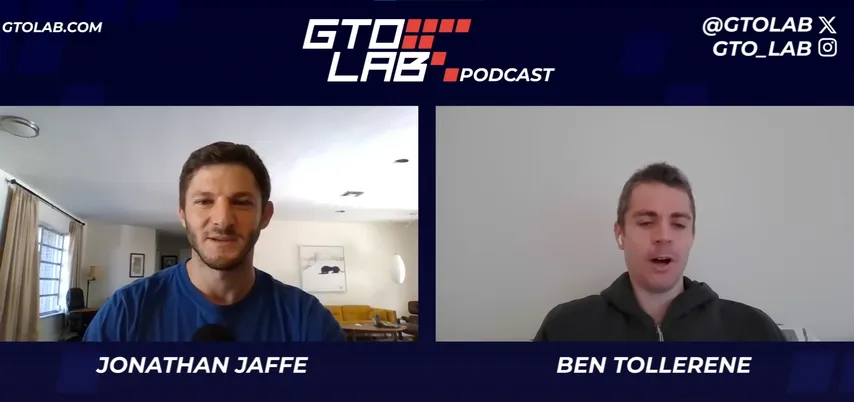
– Let me piggyback on that disclaimer. I mentioned it on one of the previous pods, but this is a funny role for me because I had said no to every podcast request my whole career until I became a podcast host. My thinking was I would really enjoy it—I'm a talker, and I run my mouth—but future me would be both embarrassed, ashamed, self-conscious, and all these things. I was like, "The equation just doesn't work out."
I’ve kept a journal for maybe 12 years, and that's a personal, private thing, but even just with the audience of only me, I go back and I'll read something from four years ago, and I'm just shaking with, "Oh my God, what an idiot!"
– Yeah, I know what you mean. It's an intimidating thing to step into, but also not participating and not putting yourself out there and having some fun and having an opinion—that didn’t seem like the right way to go about it either. I was just really enjoying all of these ones with the people that you’ve been interviewing. I had this feeling that I just wished there was more of this. I wished there were another program that was doing the same thing, so there was more content, but that also just kind of motivated me to say, "Well, I could do one too and contribute to this thing that I'm enjoying for other people to watch."
– I'm going to ask you a broad question, which is, we were playing the game at the table, and I asked Aleksejs Ponakovs. You heard about this; it was between you and I can't remember who else, but it was: who would win a contest eating as many hamburgers as they could in one minute? The game aside, Ponakovs afterward said, "Yeah, I don't really know Ben."
That kind of threw me. I'm like, he's the biggest legend in the room, but he might have just meant personally. I also felt like a lot of, you know, Pikov isn't new, but let's take some of his stable. Some of those guys are relatively young. There's got to be a lot of people, even in a Triton room, who don't really know your background or maybe they’ve gotten one line and heard, "Oh yeah, Ben was like a cash game crusher back in the day. I think he’s a PLO player." So, you’ve had an interesting career arc; can you dive into that a little bit?
– I think I made a bad first impression with Ponakovs. I jammed Nine-Deuce suited for eight and a quarter big blinds BVB, and he had a call, and he just looked at me with such disappointment. I’m sure people have spotted that; that’s my… yeah, I just wanted to get that out when you mentioned Ponakovs.
Oh, another funny thing that you made me think of was, so I was fortunate to win the 50k PLO at Triton, and a guy comes up to me and he’s like, "Congratulations, you’re not exactly known for your PLO. How did it feel to do so well in a PLO tournament?"
My career started in ‘05. I bought one of those $600 credit cards. I mean, it started a bit before this, driving to home games in Texas where I grew up, but my real career, I would say, I started with one of those $600 that matched your deposit on Full Tilt. I bought this card that you could deposit with because you couldn’t deposit with a normal card. I started at 10/25 cent. This was 2005/2006, and I basically just climbed the stakes from scratch. To make it brief, by like '09, I think I was playing 5/10, getting into 10/20, and 2011 maybe 25/50. It shot up pretty fast from there.
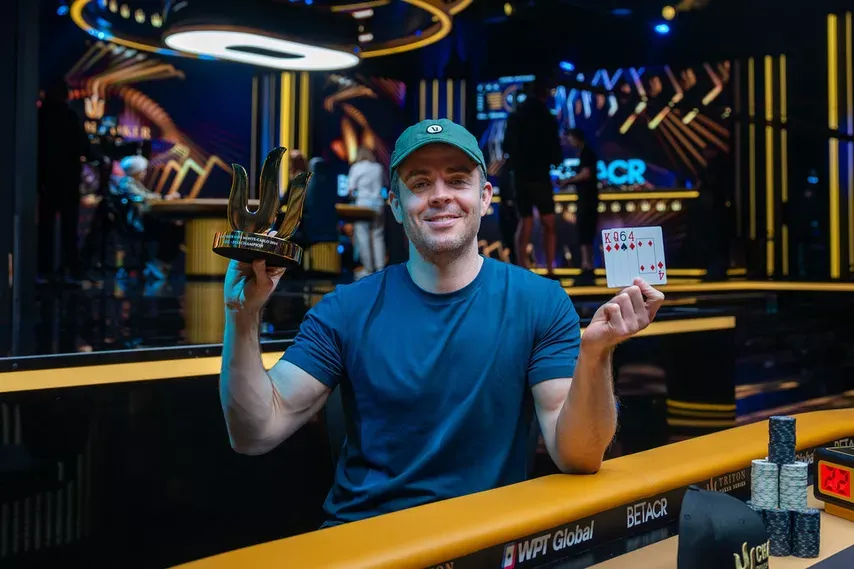
I mostly switched to PLO in ‘09. I was still playing both games and still studying both games, but I felt like I had more opportunity to make money in PLO. Then I went straight into the nosebleeds. Everything went well, I mean, not 100% of the time, but I basically ran it straight up from micro stakes to the nosebleeds.
– I’ve heard stories that early on you were doing a lot of work like pen and paper work. You know, pre-solver you’re doing like rudimentary self-solves. Was any of that going on in ‘06 to ‘09, or did that start at PLO?
– Oh yeah, definitely. A big influence in this way was… I started to work; actually, this is a bit later, but I started to work with Ike. I bought coaching from Ike in 2011, and he just became a huge influence on my game and how I thought about the game. I was trying to do the right kind of work, but something was missing, I would say, until I connected with him.
Around that time, I was reading "Mathematics of Poker," and the idea of playing a game theoretically sound strategy resonated with me perfectly. Basically, all I wanted to do was just be unexploitable and try to play that way. I think I was flailing, trying to find that I was headed in the right direction, but wasn't getting some of the more basic concepts right. Around 2011, I hired Ike, and I hired a game theory professor to teach me Game Theory lectures that had nothing to do with poker. That’s when it really took off into I mean when you look back at it now, a lot of the stuff in Excel is simple.
– Why did Ike take you on in 2011, do you know? I know he hasn’t done much personal coaching in his career. Was he getting some of your profit, or was it just an hourly rate? I know he hit a rough patch at some point; maybe that was Black Friday. A lot of people he was backing or whatnot that kind of was a financial hit. Do you know why Ike took you on?
– I don’t know exactly. I like to think a part of it would be the way that I asked and the way that I behaved and showed up to lessons and stuff like that. His rate was high, so perhaps that was more appealing to him than it was before, but we got along really well. The lessons were great, and I would bring a lot of questions and material to the lesson. I think I was helping him get better by teaching me as well, so there was a lot of synergy there between the two of us.
– Tell me about the Game Theory professor. I heard was he French? How did that come about? How did you choose this individual, and what do you think you took away from that?
– His name was Alex Martin. I think he was a Bluefire Poker coach. Maybe that’s completely made up, but he was a French Game Theory professor.
I was all in on the idea of learning and playing a GTO strategy, but that didn't exist at the time, so I needed to figure it out. I needed to build something indicative of that or with that spirit in mind, and I thought that the first step to that would be to understand Game Theory better. I just… it’s very simple. I said, "I want to understand Game Theory; this guy is a Game Theory professor. Will you teach me?"
We would talk about applications to poker, but he would also teach me about saddle points and other concepts that have nothing to do with poker. It was cool to be in that frame of mind and try to think in that way. He had this node-by-node game that was red player versus blue player, and it was just toy games. You could solve these toy games with bare bones parameters that I don't exactly remember right now, but I do remember learning from that—seeing this polar range across multiple streets feeling more EV from the other player as the bet size goes up. It sounds so simple now, but seeing it visually in the form of a toy game back then was powerful for me.
– Hearing your story contrasts so strongly with mine. I was someone who had zero interest in studying; did not see the future of poker at all clearly. It kind of washed me up around that time.
– That sounds a little harsh; I was about ready for a demotion around 2012 to 2014. You were a great example of why I cared about this kind of work and why I felt it was powerful is because I felt like I’d hit the cap on outfoxing my opponent or outwitting them in that way that we used to do. I felt like once I got to the 25/50, it was just like, "I'm getting tricked as often as I’m doing the tricking."
I felt more confident in what I was doing because we would sometimes play the 5K heads-up sit-and-gos (which I know you did great at), and when we would play, you would take these lines that would push such strong feelings in me. I felt like I should fold, I need to fold, but I would just sit there and be like, "Okay, calm down, he's betting 60% pot." Then I would feel like I wanted to fold so badly, and I’d click call, and you'd have a bluff.
Did you have an adjustment to your approach, or what did you do in that time when you were feeling that way?
– I think I need to back up to my orientation to poker, which was that it was very natural for me. I kind of felt like one of these people who was good instantly and never did any work, and that made me very entitled and spoiled. It was just playing into, "This is how the world is supposed to be; I’m supposed to be given things." When that’s no longer the case, it made me feel petulant.
As I saw myself getting worse and worse relative to the competition, I just became less and less interested. It did correlate with some of my values in a positive way, which was I was never somebody who was intent on making a ton of money. As soon as I had a million dollars, I was kind of like, "Why would I make any more money? Doesn't really make too much sense; I'm not even interested in spending this."
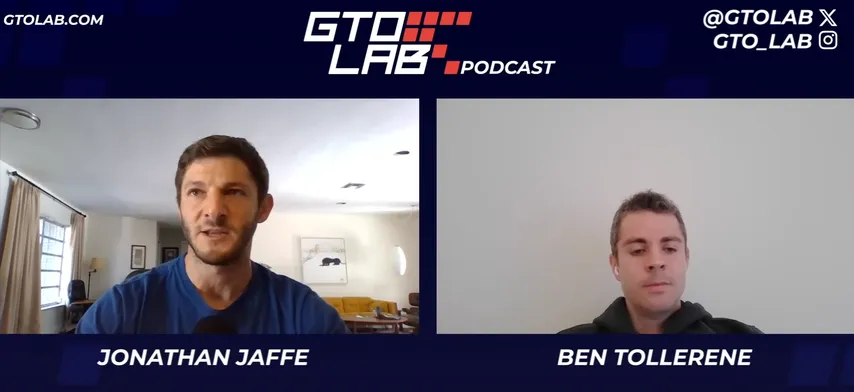
I liked being at the top of a hierarchy, but I didn't really like fighting for it; I wasn’t that interested when there was adversity. I was at a point in my life where I wanted to do other things. I wanted to date more, golf more, and socialize. I was also smoking a fair amount of weed and going to the movies every day. I think I was getting in touch with a lot of my emotions that I’d neglected.
I’d just been a competitive guy doing competitions, and I liked watching a drama and crying. I was like, "Wow, I'm tapping into something kind of cool." That was the direction it drove me. I feel like I got fired from my job, in many ways, but maybe that was a blessing.
– I can relate to that experience of wanting to balance yourself out and being very one-dimensional—trying to get to the top of this thing. For me, I think more trying to get there, and for you, I think that was more natural. It sounds like you just arrived there without a great effort behind it.
– I think I was forced to zoom out. I’m exaggerating saying I was fired from my job, but getting a demotion essentially made me kind of zoom out and ask some of the bigger questions about what I wanted from life. If I had kept climbing and kept winning massive amounts of money, the opportunity cost would have felt very high, combined with the fact that I would have just enjoyed being at the table more. It may have been a longer road toward me zooming out and getting perspective on what I really want out of life.
I'm curious about a lot of the top PLO players back in the day: Isildur is such a legend, Galfond has had staying power and has been very influential in the community in so many ways, and Ike is... I've heard him referred to as the Godfather, which seems reasonable. He's just everywhere in poker. I'd be curious if you could riff on these guys, some of where you think their staying power came from, why they’re so good, and some of their unique skills. They strike me as all very different people, yourself included. Oh, and Sauce too!
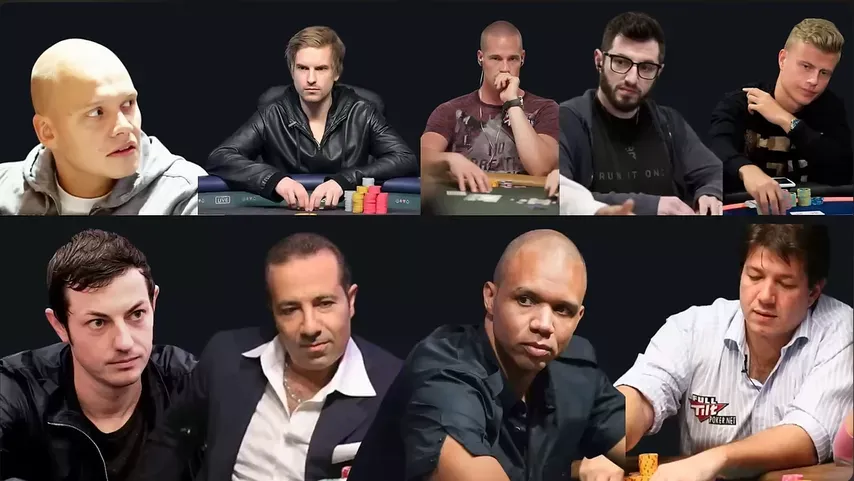
– Sure, that was an interesting time, something I know a lot about.
Isildur was a feel player. I actually don’t know much about how he plays anymore, but at the time, he was a full-blown feels player. He played differently from everyone. He had a very strong knack for playing heads-up big bet deep. He found a lot of things; he never really had very good sizes unless the size was big, but he was the first person to bring over-betting into fashion. So he had a lot of, he could, he did things that were so impressive to me, especially once I uncovered the answers in the solver down the road.
He would structure things correctly and sort of build ranges that made sense. One thing that he really suffered from is he just never bet smaller than like 75% pot, and that's problematic. I played him more than anyone, I think. I've played... I forgot the number, but it's well over 50,000 hands of heads-up against him. There were times where I’m pretty sure he was getting the best of me. He also could play the longest, most degen sessions of anyone that I remember battling with.
– What was the longest you remember playing with him?
– I was never a 24-hour kind of guy or anything, but we definitely played some like 12-hour bloodbath sessions against each other. We had those two cap sessions that get talked about a lot where we were four-tabling 5/1k cap PLO with the 3x, the 3x raise or fold—an idiot's agreement. No limping.
To make it worse, we both thought that we had to open like 92% if we can't, like, if the alternative is folding. So it was this huge standard deviation stock just going in every hand. The big swing session here was I had one where I lost $1.7 million and then went to sleep, and then we played all day the next day and I won like $1.5 million or something. It was a wild time.
I think I still have permanent brain chemistry changes from it. I'm not kidding; I think it did something.
– Would you ever imagine that he would transition to fix limit eight-game?
– I don’t know how that works for him. The feedback when he first went there was that he was again just surprisingly good and did a lot of things that made sense. There’s no bad size weaknesses at fix limit, but it doesn't feel right. Isildur needs to be super deep and uncapped and heads-up for big bet poker.
Galfond is an interesting one. I think, again, more in the feel category, but he was more controlled. I don't mean this as a downer to Isildur, but I want to say more sophisticated, a little more nuanced, a little less predictable.
Obviously, all the reps and… he’s one of the greatest thinkers. We all learned so much watching his videos. He and I were both living in Vancouver, so we had an interesting dynamic where sometimes we would play 300/600 PLO all day, and then we’d go have dinner together after massacring each other and starting tables heads-up. It was a weird time.
– How does that conversation play out? There’s a temptation to talk about the common denominator, what you guys are relatively obsessed with at the time, but you’re not looking to give strategy tips to the other guy.
I think we navigated it pretty well. Some friends in poker, the hands you play against them feel more personal. They can’t separate friendship from that or whatever, but I think he and I navigated that really well, and there wasn’t any drama or tension. We could talk hands and give each other honest feedback. That’s cool. I don’t know what to say about his game. I feel like he was just good.
I wish I could give you more, but stylistically, I don’t know how to describe him. He wasn’t like a mechanical savage, like a Sauce or somebody like that. He had the experience, the feels, and some of his own ideas that he was very effective at implementing.
Sauce was a pretty scary opponent. I became friends with Sauce somewhere around when I was peaking, and I didn’t play him heads-up very much. Sauce innovated a lot of the strategy back then. Sauce innovated some of the stuff; we all used to fold the big blind too much. He was one of the first people to say that you can realize enough equity to defend these hands. He played in the spirit of a computer before they came out. He was doing similar work that I was doing, and he was very good at it.
There was a sharpness to playing him where if you weren’t playing in a balanced way, you could feel the feedback of, "You can't get away with doing that against this person."
Phil Ivey was interesting in that he was less studied, less mechanically intact, so to speak, but had impressive feels. He’s just a player; he has a sense of what he needs to do. You never feel too comfortable. I think ultimately the mechanical weaknesses were too much for extended heads-up matches. He was in and out of focusing. Some periods he was intense and being deliberate about paying attention, and sometimes he was not focused and doing other stuff.
I didn’t play Ike because we were working together, but in my book, Ike’s the greatest. The greatest anything PLO, but just overall poker impact. You can’t have the career I’ve had and not think that just like the stuff that I’ve experienced with him. The difference is when I talk to Ike versus when I talk to someone else, Ike answers questions in this robust way where he thinks through the problem as he’s answering you and builds the rational conclusion from scratch instead of quoting something he’s memorized. It's usually, "You do this because of this and this mechanic." I always find that very impressive because I’m okay at that, but I rely a good bit also on just memorizing stuff if I can’t find my way through the mechanic.
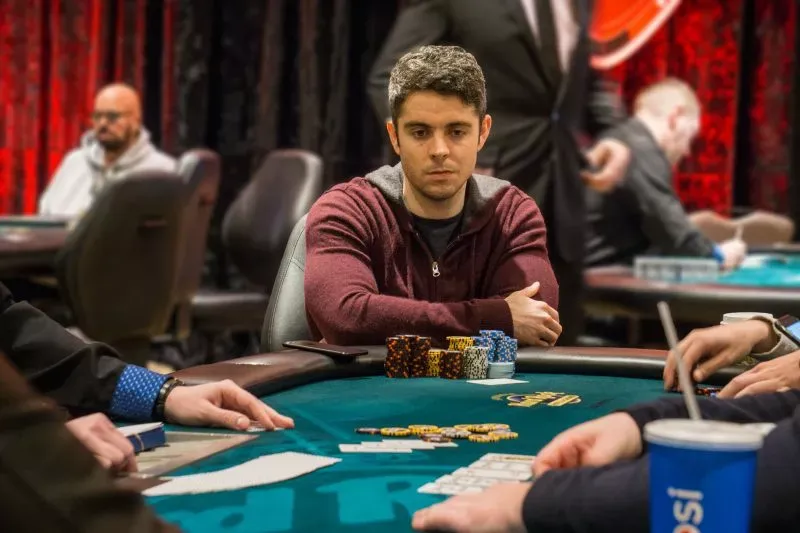
– You mentioned you had these kind of back-to-back famous sessions against Isildur where, if I have it right, you lost $1.7 million, go to bed, wake up, win $1.5 million.
– I like that question a lot. You made me think of something that is missing for me now that I would love to cultivate again: I had so fully bought into the long-run mindset back then. I looked at poker as a life, a career, whatever; I was disconnected from daily sessions. Of course, I was aware of how much of my money I just lost for practical bankroll reasons and stuff, but I wholeheartedly was... J Koon was living with me then, and I told him... He was on a trip, but I called him and I said, "I think it was going well; it just was very swingy, and I'm going to keep playing him."
I feel when I play live tournaments, it’s hard to escape that feeling that you’re only going to get a few really big shots, and you want them to go well. It doesn’t feel like a long run in that same way, and that's something that I’m missing in trying to get back to playing a little more carefree, I guess, or to commit to playing well and not feel like I’m playing a hand in a vacuum a little more than I would like.
In terms of what it built, I think… I don’t want to be overly complimentary, but I was going to say enormous emotional control. I feel like I’m actually a huge tilter in my heart, and I feel a lot of anger and rage and stuff, but it has no impact on my game, and it hasn’t for a very long time. I think I just learned that by volume and living through it.
On the bad side, I’ve wondered about things like attention span, reward system. I’ve really struggled with those things—addiction, reward-seeking. I'm so bored all the time. I look back to these days and I think, "Of course you're bored, like that was the purest crack heroin possible."
– That’s how I felt about heads-up. Start a podcast; it takes up some time.
I’ve wanted other guys in GTO Lab to take on some guest-hosting. Would you ever be interested in guest-hosting?
– That would be awesome. I would love to. I don’t know if I’ll be good at it, but I really enjoy what you’re creating, and I think that there’s room for more of it and that people would like consuming it.
– My final question on the podcast is for three recommendations. Do you have any recommendations of any kind for the audience?
– Excellent. My first recommendation is a therapy technique for body pain. If you haven’t done cupping, go to the physio and get yourself some cupping done. It’s been incredible for me. I can be in pain that day, having trouble moving fluidly, get the cups, and I feel fully better that day. A fun anecdote is the first time I ever did it was in London before the $100k in Stratford. I had seen the Olympians with these cup marks on them, and I thought, "I’m going to try that."
I did cups that day, won the tournament, and didn’t do cups again until this year. I’ve been doing them a lot this year; hence the recommendation. I’m going into the 25k no-limit at Poker US Poker Open, or Poker Masters, and I told the woman, "Last time I did cups, I won the tournament, just so you know, there might be some magic here.” She does me up, and I go and I win the tournament.
– This is a strong endorsement.
– The second recommendation is a listening technique that has helped me a lot. I think a lot of Poker people are a little bit overactive in their heads, and perhaps when you want to be listening, you're thinking. Something that I enjoyed that I heard was as the listener also just pay attention to the space between the words and at the end of the sentences and listen to those silences.
Listen to the words that are being said and also the gaps between them, and I find when I do that, it adds some context because the pause is saying something. It keeps me in the moment with the person and listening to them more intently. So, I recommend that.
There's a Spotify playlist called Dreamy Forest Music Forest. I’ve really been enjoying it for stretching, meditation, whatever. I put on the Dreamy Forest Music playlist and enjoy.
– Well, I have a recommendation too. Tune in for an episode to come where Ben is going to be in this seat. Ben’s got some clout too, so he can get some guests. I’m excited to see who comes on. I don’t want to put too much pressure on this, but I know it’s going to be good.
– I’ll do a good job; I believe I can do it.












